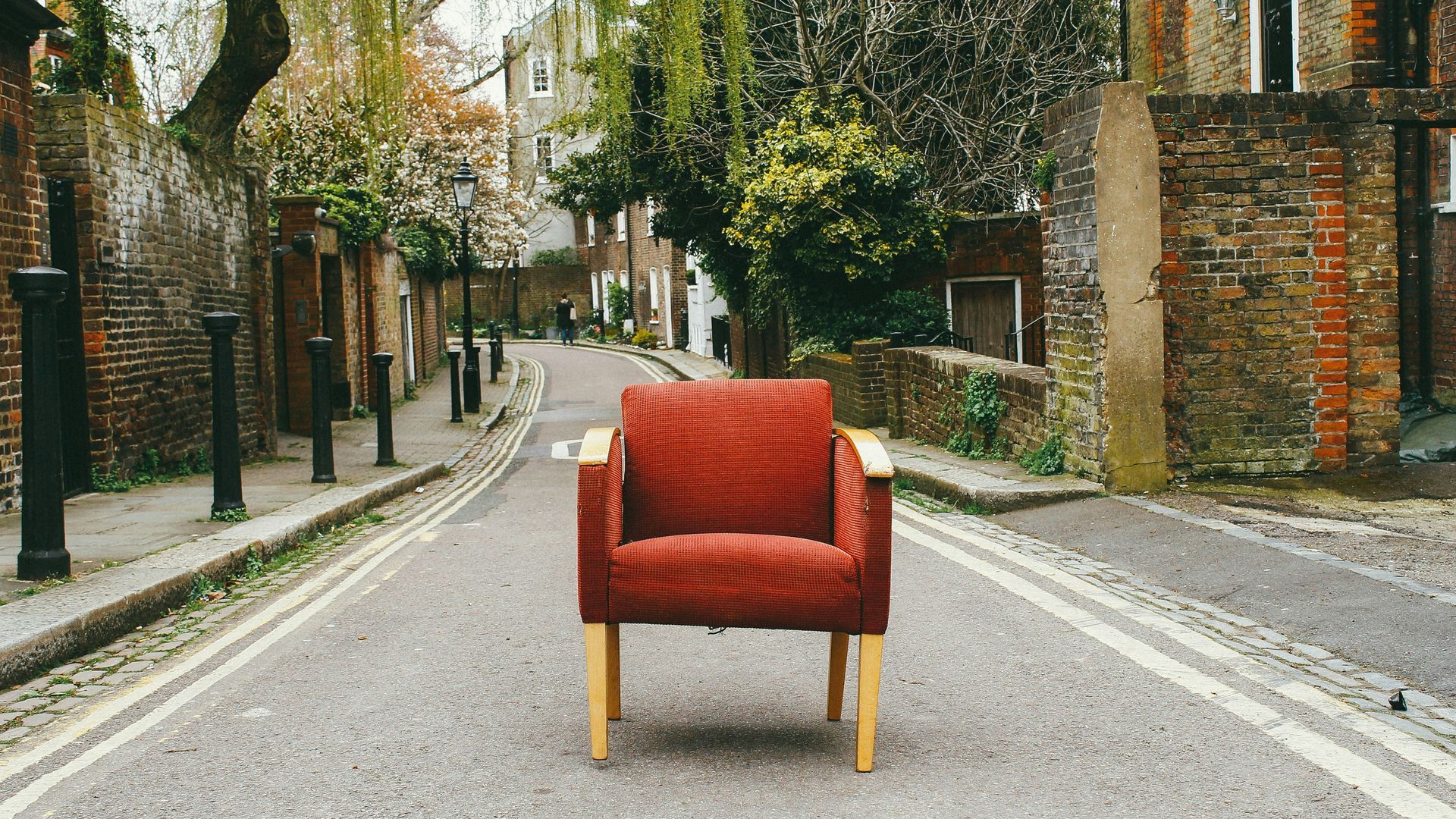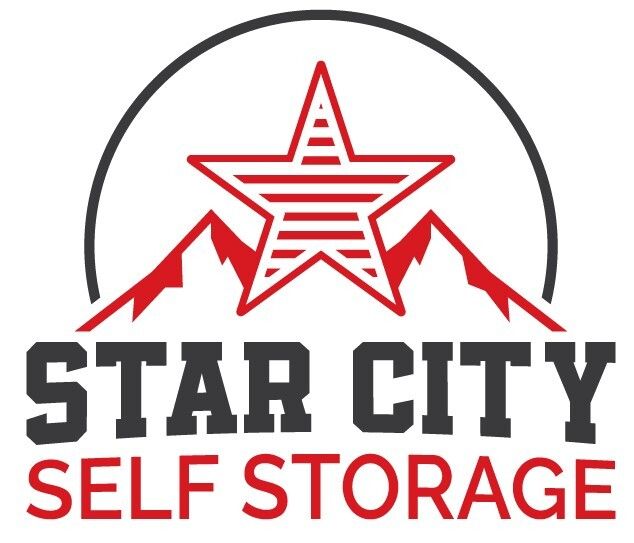Star City Self Storage Blog

When it comes to self storage, one of the most common questions we hear at Star City Self Storage is: “What size unit do I need?” Whether you're storing a few seasonal items or everything from a four-bedroom home, picking the right size can save you time, money, and stress. Here’s a quick guide to help you find the perfect fit. 5x5 Storage Unit – Small but Mighty Think of this as a walk-in closet. It’s great for: Boxes of holiday décor Seasonal clothing Personal items or documents Small furniture like a nightstand or office chair Ideal for: Students, minimal storage needs, or decluttering small spaces. 5x10 Storage Unit – Perfect for Small Apartments This size fits the contents of a small bedroom or studio apartment, including: A mattress set Small dresser or bookshelves Boxes and totes Bicycles or small appliances Ideal for: College students, renters in transition, or storing inventory for a small business. 10x10 Storage Unit – A Popular Mid-Size Option Comparable to a standard bedroom, this unit can hold: Furniture from a one-bedroom apartment Kitchen appliances Multiple boxes and bins Office equipment or files Ideal for: Apartment moves, home renovations, or downsizing. 10x15 Storage Unit – A Roomy Choice Need more space? This size is great for: Contents of a two-bedroom home Larger appliances and furniture Outdoor equipment or patio furniture Business storage needs Ideal for: Families, long-term storage, or small business owners. 10x20 or Larger – For Whole-Home Storage Need serious storage space? These units can accommodate: The contents of a 3–4 bedroom house Large furniture sets and major appliances Garage and shed items Vehicles, trailers, or motorcycles (depending on local regulations) Ideal for: Homeowners in transition, relocations, or storing boats/RVs. Still Not Sure? We’re Here to Help. At Star City Self Storage, we make it easy to find the perfect unit. Our friendly team is happy to walk you through your options based on what you’re storing. We even offer online tools like size guides and on-site tours so you can feel confident in your choice. Ready to Get Started? Visit our facility in Roanoke, VA, or call us today to speak with a storage expert. With clean, secure units and a range of sizes available, Star City Self Storage is here to help you store smarter.

As the seasons change, so do our storage needs. Whether it’s summer patio furniture, winter holiday decorations, or fall sports gear, keeping seasonal items organized and properly stored ensures they stay in great condition for when you need them next. At Star City Self Storage, we provide the perfect space to keep your seasonal belongings safe and out of the way. Follow these tips to store your seasonal items like a pro! 1. Sort and Organize Before placing anything in storage, go through your seasonal items and decide what you want to keep, donate, or discard. Organizing beforehand helps maximize space and reduces clutter. 2. Use Durable Containers Plastic bins with tight-fitting lids are ideal for storing seasonal decorations, clothing, and small accessories. Unlike cardboard boxes, plastic bins help protect against dust and moisture. 3. Label Everything Clearly Label each box with its contents and the season it belongs to. This makes it easy to locate items when it’s time to swap them out. 4. Store Clothing Properly For off-season clothing, use vacuum-sealed bags or plastic bins to keep them fresh and free from pests. Hanging storage racks can also help prevent wrinkles. 5. Protect Holiday Decorations Fragile ornaments and lights should be wrapped in bubble wrap or stored in sectioned containers to prevent breakage. Wreaths and artificial trees can be kept in specialized storage bags. 6. Stack Strategically Place heavier boxes at the bottom and lighter ones on top. Keep frequently used items near the front of your storage unit for easy access. 7. Utilize Shelving Adding shelving units to your storage space helps keep items off the floor and makes organization even easier. 8. Consider Seasonal Rotation As each season ends, rotate stored items so that the next set of seasonal gear is easily accessible. This saves time and effort when making the switch. Store Your Seasonal Items with Confidence At Star City Self Storage, we offer secure, convenient storage solutions for all your seasonal needs. Whether you need a small unit for holiday decorations or a larger space for patio furniture and sports gear, we have the perfect option for you. Contact us today to find the right storage unit and keep your seasonal items safe year-round!

When storing your belongings, the last thing you want is to find them damaged by pests. At Star City Self Storage, we take preventive measures to keep our facility clean and pest-free, but proper packing and storage techniques can further protect your items. Follow these essential tips to safeguard your belongings from unwanted critters. 1. Use Sealed Containers Cardboard boxes can attract pests, especially if they contain food residue or paper-based materials. Instead, opt for plastic bins with tight-fitting lids to keep insects and rodents out. 2. Never Store Food Even non-perishable food items can attract pests. Avoid storing snacks, pet food, or anything edible, as these can quickly become a food source for rodents and bugs. 3. Clean and Dry Everything Before Storing Make sure all items, especially furniture, clothing, and appliances, are clean and dry before placing them in storage. Leftover crumbs, spills, or moisture can attract pests and lead to mold or mildew. 4. Elevate Your Belongings Keep items off the ground by using pallets or shelving. This helps improve airflow and makes it harder for pests to reach your belongings. 5. Use Pest Deterrents Consider placing pest deterrents such as cedar blocks, lavender sachets, or mothballs inside your storage unit. These natural repellents can help keep insects and rodents away. 6. Protect Upholstered and Fabric Items Cover mattresses, couches, and fabric-covered furniture with plastic or fabric covers to prevent pests from nesting inside. Vacuum-sealed bags are also great for storing clothing and linens. 7. Inspect Your Storage Unit Regularly If possible, visit your storage unit periodically to check for signs of pests or damage. Early detection can help prevent a small issue from becoming a bigger problem. Store with Confidence at Star City Self Storage At Star City Self Storage, we work hard to maintain a clean and pest-resistant facility, but taking the right precautions when storing your items is always a good idea. By following these simple steps, you can keep your belongings safe and protected year-round. Need a secure storage unit? Contact us today to find the right storage solution for you!

Moving can be stressful, but finding the right local moving company can make the process much smoother. Whether you're relocating across town or moving into a self storage unit in Roanoke, VA, choosing a reliable mover ensures your belongings are handled with care. This guide will help you explore local moving companies and services to make your transition as easy as possible. Choosing the Right Local Moving Company When selecting a moving company in Roanoke, consider the following factors: Reputation and Reviews – Look for movers with positive customer feedback and high ratings on platforms like Google, Yelp, and the Better Business Bureau. Services Offered – Some companies specialize in local moves, while others offer long-distance or commercial moving services. Licensing and Insurance – Ensure the company is licensed and provides insurance coverage for your belongings. Pricing and Estimates – Request quotes from multiple companies and compare their rates, services, and policies. Top Moving Services Available in Roanoke, VA Roanoke is home to several professional moving companies that provide excellent services for residential and business moves. Here are some common moving services to consider: 1. Full-Service Movers Full-service moving companies handle everything from packing to loading, transporting, and unpacking your items. This is a great option for those who want a hands-free experience. 2. Labor-Only Moving Services If you prefer to handle transportation yourself but need help with heavy lifting, labor-only movers can assist with loading and unloading your truck or storage unit at Star City Self Storage. 3. Specialty Movers For delicate items such as pianos, antiques, or artwork, specialty movers ensure your valuables are packed and transported safely. 4. Moving Truck Rentals For a DIY move, renting a truck from companies like U-Haul, Penske, or Budget allows you to move at your own pace while keeping costs low. 5. Packing and Unpacking Services If you need help organizing your belongings, professional packers can ensure everything is securely packed, reducing the risk of damage. Pairing Your Move with Secure Self Storage If your move involves downsizing, staging a home for sale, or transitioning between residences, Star City Self Storage offers secure, affordable storage solutions in Roanoke. Renting a storage unit allows you to keep your belongings safe during the moving process without feeling rushed to unpack. Final Tips for a Stress-Free Move Book movers early to secure your preferred moving date. Declutter before packing to reduce the number of items to move. Label boxes clearly for easy unpacking. Store seasonal or extra items in a secure storage unit for added convenience. Moving doesn’t have to be overwhelming. By choosing the right moving company and utilizing a self storage unit in Roanoke, you can make the process smoother and more organized. Contact Star City Self Storage today to learn more about our available storage options!

Bringing a new baby into your home is one of life’s most exciting milestones. However, preparing for this joyful addition often comes with its share of challenges—particularly when it comes to making room in your home. As you begin nesting, the extra furniture, baby gear, and storage needs can quickly turn into a logistical puzzle. That’s where self storage can make all the difference. If you’re looking for a way to free up space, self storage in Roanoke, VA, can help you get organized and ready for your little one’s arrival. Here’s how Roanoke storage units can help you prepare your home for your growing family. 1. Declutter to Create Space A new baby brings a surprising amount of stuff—cribs, changing tables, strollers, and more. To make room for these essentials, start by decluttering your home. Identify items you no longer need, and donate or sell them. For belongings you want to keep but don’t use regularly, like seasonal decorations, old furniture, or keepsakes, a storage unit can provide the perfect temporary solution. By moving these items to a storage unit, you’ll open up valuable space in your home for the baby’s nursery and other essentials. 2. Repurpose a Room or Space Many growing families repurpose an existing room, like a guest bedroom or home office, into a nursery. This can mean displacing furniture, supplies, or equipment that you still want to keep but don’t have room for at the moment. A storage unit offers a safe and convenient place to store these items until you need them again. For example, you can store guest beds, desks, or filing cabinets in a Roanoke storage unit to transform your space into a cozy and functional nursery. 3. Rotate Seasonal Items Bulky seasonal items like winter coats, holiday decorations, and gardening tools can take up valuable space in closets, basements, and garages. Moving these items into a storage unit will free up these areas for baby-related items, such as diapers, clothes, and toys. With your seasonal gear safely tucked away in storage, you’ll have more room to focus on what matters most—getting your home baby-ready. 4. Store Baby Gear You’re Not Using Yet Babies grow quickly, and so do their needs. You may have already received items like high chairs, walkers, or toddler beds that you won’t need for several months (or even years). Rather than letting these larger items take over your home, store them in a storage unit until you’re ready to use them. This approach keeps your living space organized while ensuring that these future essentials are safely stored and easily accessible. 5. Prepare for Visitors A new baby often brings a steady stream of family and friends eager to meet the newest addition. If you’re preparing a guest room for overnight visitors, consider using a storage unit to temporarily house non-essential furniture or items. This will create a welcoming, uncluttered space for your loved ones while maintaining order in your home. 6. Organize Keepsakes Welcoming a baby often means revisiting and preserving memories from your own past. Whether it’s childhood keepsakes, heirlooms, or family photo albums, these items deserve a safe place to be stored. A climate-controlled storage unit is a great option for protecting sentimental belongings while ensuring they’re not in the way as you prepare your home for the new addition. 7. Create a Backup Plan for Long-Term Storage As your family grows, you’ll continue to accumulate more belongings—from baby gear and toys to furniture and clothing. Having a reliable storage solution in place can help you stay organized as your needs evolve. Roanoke storage units offer flexibility, allowing you to store items for as long as necessary and access them whenever needed. Why Choose Star City Self Storage? If you’re in need of self storage in Roanoke, VA, Star City Self Storage is here to make the transition smoother for your growing family. Our clean, secure, and conveniently located storage units are perfect for storing everything from baby gear and furniture to seasonal items and keepsakes. We offer a range of unit sizes to fit your needs, along with flexible rental terms and excellent customer service. Whether you’re storing items for a few months or need a longer-term solution, Star City Self Storage has you covered. Get Ready for Your New Arrival Preparing for a new baby doesn’t have to be overwhelming. By incorporating a storage unit into your planning process, you can create the extra space you need to welcome your little one with ease. Whether you’re decluttering, organizing, or simply making room for baby gear, self storage in Roanoke, VA, is a smart and convenient solution. Ready to reclaim your space and get baby-ready? Contact Star City Self Storage today to learn more about our Roanoke storage units and reserve your space. Let us help you focus on what really matters—celebrating the newest member of your family!

Storing furniture can be a daunting task, whether you're moving, renovating, or simply decluttering your home. At Star City Self Storage, we understand the importance of keeping your belongings safe and in excellent condition. Here are some essential tips to help you store your furniture securely and efficiently in a storage unit. 1. Clean and Dry Your Furniture Before Storage Before placing your furniture in storage, ensure it is thoroughly cleaned and completely dry. Dust, dirt, and moisture can lead to stains, mold, and mildew, which can damage your furniture over time. For upholstered pieces, consider vacuuming and spot-cleaning any stains. Wooden furniture should be wiped down with a damp cloth and allowed to dry completely to prevent warping or cracking. 2. Disassemble When Possible Disassembling larger furniture items can save space and reduce the risk of damage. Remove legs from tables and chairs, take apart bed frames, and detach any removable parts. Keep all screws, bolts, and small pieces in labeled bags and store them in a safe place. This not only makes transportation easier but also minimizes the chances of your furniture getting scratched or broken during storage. 3. Use Protective Covers Protective covers are essential for safeguarding your furniture from dust, scratches, and other potential damage. Use blankets, moving pads, or specialized furniture covers to wrap each piece thoroughly. For upholstered furniture, consider using plastic covers or slipcovers to prevent stains and spills from seeping in. Proper covering also makes it easier to move your furniture without worrying about accidental damage. 4. Elevate Furniture Off the Ground To protect your furniture from potential moisture and pests, elevate it off the ground using pallets or sturdy shelves. This creates a barrier that helps keep your items dry and reduces the risk of insect infestations. Additionally, keeping furniture elevated allows for better air circulation around your items, which can help prevent mold and mildew growth. 5. Use Quality Packing Materials Investing in high-quality packing materials can make a significant difference in the safety of your furniture during storage. Use sturdy boxes, bubble wrap, packing paper, and foam padding to cushion delicate parts and prevent scratches. For larger items, consider using moving blankets or furniture sliders to facilitate easy movement and protect surfaces from scuffs and dents. 6. Choose the Right Storage Unit Size Selecting an appropriately sized storage unit is crucial for organizing your furniture effectively. Measure your furniture and compare it to the dimensions of available storage units to ensure a good fit. An overcrowded unit can make it difficult to access your items and increases the risk of damage. At Star City Self Storage, we offer a variety of unit sizes to accommodate your specific needs, ensuring your furniture has ample space to remain in pristine condition. 7. Organize Your Storage Unit Efficiently Efficient organization within your storage unit can help protect your furniture and make it easier to retrieve items when needed. Place heavier items at the bottom and lighter pieces on top to prevent crushing. Arrange furniture against the walls to maximize space and minimize movement. Creating a clear pathway through the unit allows for easy access and reduces the need to move multiple pieces when retrieving something. 8. Secure Your Furniture Properly Security is paramount when storing furniture. Ensure all doors are firmly closed and locked with a high-quality padlock or the storage facility’s locking mechanism. At Star City Self Storage, our facilities are equipped with state-of-the-art security systems, including surveillance cameras and secure access controls, to keep your belongings safe. Additionally, consider using furniture straps or bungee cords to secure items and prevent shifting during transportation or storage. 9. Label Everything Clearly Clear labeling is essential for keeping track of your stored furniture and making retrieval easier. Label each box and piece of furniture with its contents and the room it belongs to. This practice helps you quickly locate specific items without having to sift through the entire unit. Organized labeling also minimizes the risk of accidental damage when moving items in and out of storage. 10. Regularly Inspect Your Stored Furniture Periodically checking on your stored furniture can help you identify and address any potential issues early. Look for signs of moisture, pests, or wear and tear, and take necessary actions to prevent further damage. Regular inspections ensure that your furniture remains in excellent condition and ready for use whenever you need it. Conclusion Storing furniture safely requires careful planning and attention to detail. By following these tips, you can ensure that your furniture remains protected and in great condition while stored at Star City Self Storage. Whether you're storing a single piece or furnishing an entire home, our secure and well-maintained storage facilities provide the perfect solution for all your storage needs. If you have any questions or need assistance with your storage plans, our friendly team is here to help. Contact us today to find the perfect storage unit for your furniture! Star City Self Storage is committed to providing top-notch storage solutions tailored to your needs. Explore our range of storage options and discover the difference our secure and convenient facilities can make for your belongings.

Self-storage units are a convenient solution when you need extra space for personal belongings, business supplies, or even seasonal items. However, not everything can be stored in a storage unit. Knowing what’s allowed and what’s prohibited will ensure the safety of your items and help you comply with our guidelines here at Star City Self Storage in Roanoke, VA. What Can Be Stored in a Self Storage Unit 1. Furniture Whether you’re moving, renovating, or simply decluttering, storage units are perfect for storing furniture. You can store everything from sofas, tables, and chairs to mattresses and bed frames. Make sure to clean and protect them to avoid damage during storage. 2. Appliances If you have appliances like refrigerators, washers, dryers, or microwaves that aren’t in use, they can be safely stored. Before storing them, clean them thoroughly, and ensure they’re dry to prevent mold or mildew. 3. Seasonal Items Holiday decorations, winter clothing, and summer gear can take up a lot of room in your home. A storage unit is a great way to keep these seasonal items safe until you need them again. 4. Clothing and Personal Items Boxes of clothing, accessories, and personal belongings can be easily stored. To protect fabrics and items from dust and damage, consider using vacuum-sealed bags or plastic bins. 5. Business Inventory and Equipment Small business owners often use storage units to store extra inventory, office equipment, or documents. This is a great way to free up office space while keeping items safe and accessible. 6. Vehicles If you have an extra car, motorcycle, or boat that you don’t use year-round, Star City Self Storage offers spacious units to store vehicles. Just be sure the vehicle is registered and insured before storing. 7. Books, Documents, and Media Books, records, old files, and media like DVDs or CDs can be stored safely in a unit. Make sure to keep them in sturdy boxes to protect them from dust and damage. What Can’t Be Stored in a Self Storage Unit 1. Hazardous Materials Flammable, toxic, or explosive materials are strictly prohibited. This includes items like gasoline, propane, chemicals, paint, fireworks, and cleaning solvents. Storing these items poses a risk to the facility and other units. 2. Perishable Food Items Any type of perishable food, such as fresh produce, meat, or dairy, is not allowed in a storage unit. These items can attract pests, spoil, and cause unpleasant odors. While non-perishable items like canned goods are allowed, we advise caution to avoid pests. 3. Living Organisms No pets, plants, or other living creatures can be kept in a storage unit. The conditions in a storage facility are not suitable for living things, and storing them would violate both safety and ethical guidelines. 4. Weapons and Ammunition Firearms, ammunition, and other weapons should not be stored in self-storage units. These items can pose a significant danger, especially if the unit isn’t temperature-controlled, and they must be stored in secure, legal facilities. 5. Stolen or Illegal Items Any items that are stolen, illegal, or prohibited by law cannot be stored. This includes illegal drugs, counterfeit goods, and other contraband. Storage facilities are bound by law to prohibit such items. 6. Scented or Fragile Items Items that emit strong odors, such as perfumes, cleaning products, or other chemicals, are best avoided as they can affect neighboring units. Additionally, overly fragile items that could break easily during storage may not fare well without proper protection. 7. Cash and High-Value Jewelry While we offer secure units, it’s best to avoid storing cash, high-value jewelry, or irreplaceable heirlooms. These items should be stored in a secure location like a safe or a bank deposit box to guarantee their safety. How to Store Your Items Safely Once you’ve determined what’s allowed in your unit, it’s important to pack and organize your belongings properly. Here are a few tips for safe and efficient storage: Use Protective Covers: For furniture and mattresses, use covers to protect them from dust and moisture. Stack Boxes Properly: Place heavier boxes on the bottom and lighter boxes on top to prevent crushing. Label Everything: Clearly label each box with its contents to make finding items easier later on. Leave Space for Access: When storing items, try to leave a walkway in your unit so you can easily access items without moving everything around. Conclusion Choosing what to store in your unit at Star City Self Storage is simple when you follow our guidelines. From household items to business inventory, our storage units provide the perfect solution for your needs. However, it’s crucial to avoid storing prohibited items to ensure safety and compliance with facility regulations. If you’re ready to rent a unit or have questions about what can or can’t be stored, our team is here to help. Contact us today for more information or to reserve your unit!
